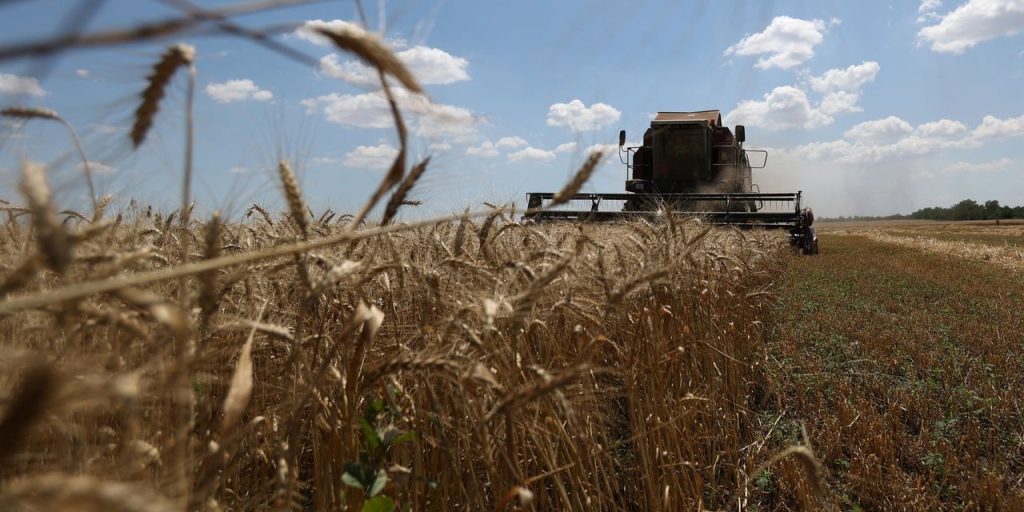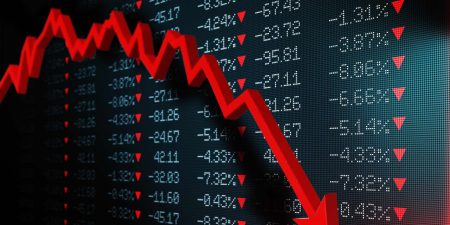Vladimir Putin is signaling he really does mean to exit the Ukraine grain deal this time. The Black Sea Grain Initiative, as the accord is formally known, enabled Ukraine to maintain more-or-less normal exports of wheat, corn, and other foodstuffs over the past year, and tamed world prices that spiked after Russia’s February 2022 invasion.
Moscow quit the deal on July 17, claiming that the United Nations and Western partners ignored obligations to make it easier for Russia to export grain and fertilizer. Putin underlined the point with intensive bombing of Ukrainian ports. “The expiration of the deal risks holding global food security at ransom,” International Rescue Committee President David Miliband says.
Markets are also getting alarmed. Chicago-traded futures for wheat, of which prewar Ukraine supplied a tenth of world exports, have risen 6%. That’s hardly a panic in commodities terms, though. There’s still a good chance Russia will rejoin the deal.
From a cold business perspective, it’s a bad deal for Moscow, letting its wartime enemy earn billions while depressing the price of Russia’s own competing sales. But the grain accord benefits Putin’s two most important international friends remaining, China and Turkey. Beijing has been the top customer by far for the Ukrainian exports. Turkey brokers all the shipments and reaps global prestige.
“The grain deal is important to both Turkey and China, and Russia has no alternative to its dependence on them,” says Alexandra Prokopenko, a scholar at the Carnegie Russia Eurasia Center. Accidental damage that Russian missiles caused to the Chinese consulate in Odesa, Ukraine’s principal port, won’t ease relations with Beijing.
Putin may angle for a face-saving re-entry when he hosts an African leaders’ summit starting July 27, Prokopenko says, looking for positive PR in the Global South. Putin has previously dangled free Russian grain for “especially needy African countries.”
Second, Ukraine has rapidly developed its Plan B’s. It has increased capacity as much as eightfold at backup grain terminals near the mouth of the Danube River, says Michael Magdovitz, a senior commodity analyst at Rabobank. From there, exports can reach the Black Sea via neighboring Romania or Moldova. Overall, Ukraine can achieve about 80% of its prewar grain export through alternative routes shielded from Russian attack, Magdovitz figures.
Kyiv might keep shipping from its own Black Sea ports despite Russia’s muscle-flexing, says Oksana Antonenko, a global fellow at the Kennan Institute. “Russia’s military leverage is pretty tenuous,” she says. “It’s completely feasible to ‘run the blockade’ if Western allies can provide an insurance fund.”
Russia’s defense ministry aimed to squelch such talk with a warning that commercial ships bound for Ukraine will be viewed as “involved” in the war.
Markets have already factored in considerable war damage to Ukrainian agriculture, Magdovitz says. World prices for wheat are a quarter higher than prepandemic levels. Corn, Ukraine’s other strategic farm export, is up more than 40%. Some 15% of Ukraine’s grain capacity is offline because of proximity to combat zones.
“Ukraine was an ascendant heavyweight in world agriculture,” Magdovitz says. “Continued economic scarring for its farmers will raise the floor for grain prices.”
For that, no clear end is in sight.
Email: [email protected]
Read the full article here















